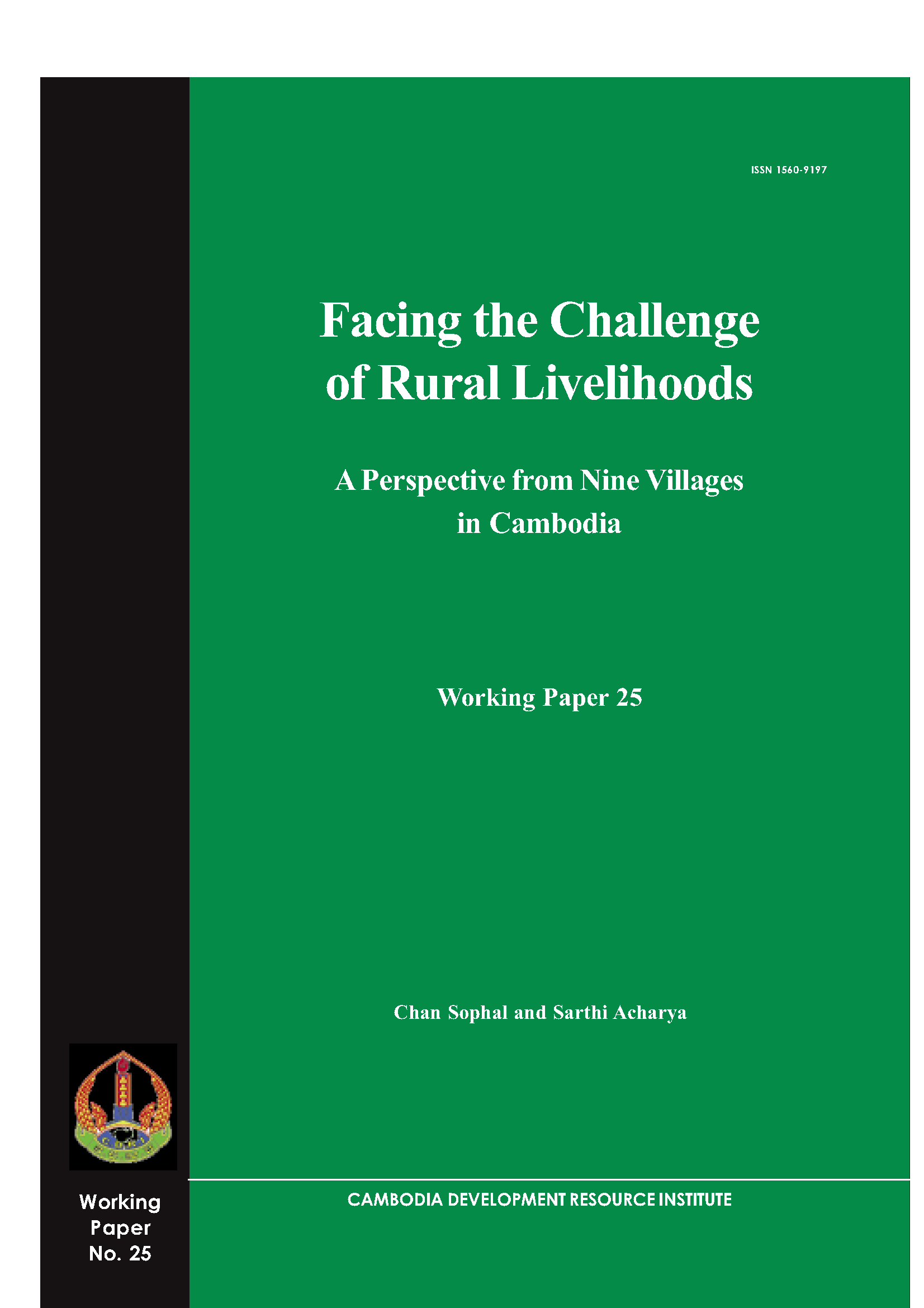
Facing the Challenge of Rural Livelihoods: A Perspective from Nine Villages in Cambodia
This working paper presents findings from a comprehensive field survey conducted by the Cambodia Development Resource Institute (CDRI) across nine villages representing Cambodia’s four agro-climatic zones. The study investigates rural livelihoods, land distribution, farm productivity, food security, and vulnerability to crises. Data from 1,005 hous...
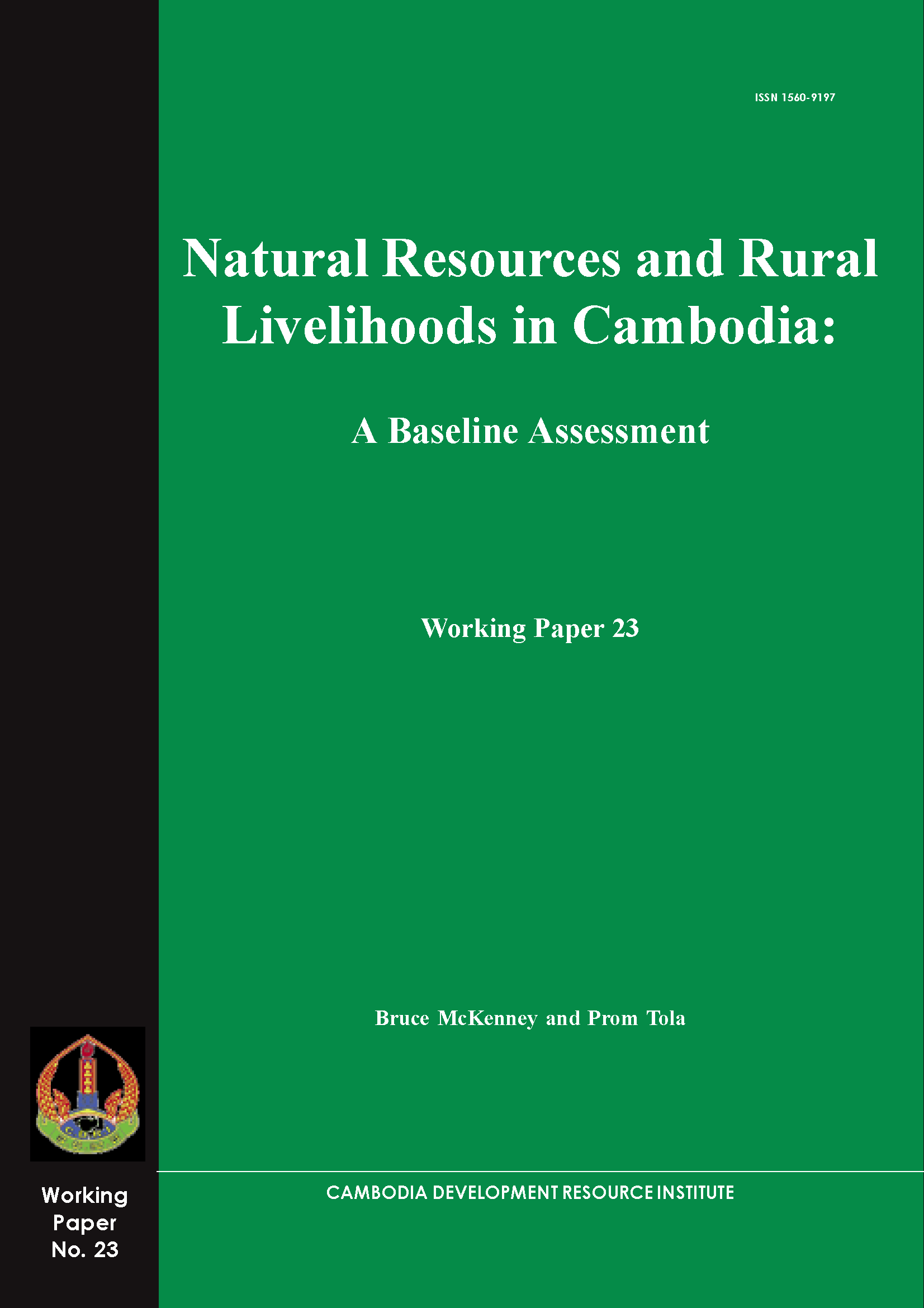
Natural Resources and Rural Livelihoods in Cambodia: A Baseline Assessment
Of the more than 10 million Cambodians currently living in rural areas, over 8.5 million depend on natural resources to support their livelihoods. Most are subsistent, relying on one crop of rice per year, fish and other aquatic resources, and a range of forest products. Although rice farming remains the dominant activity in rural areas, fishe...
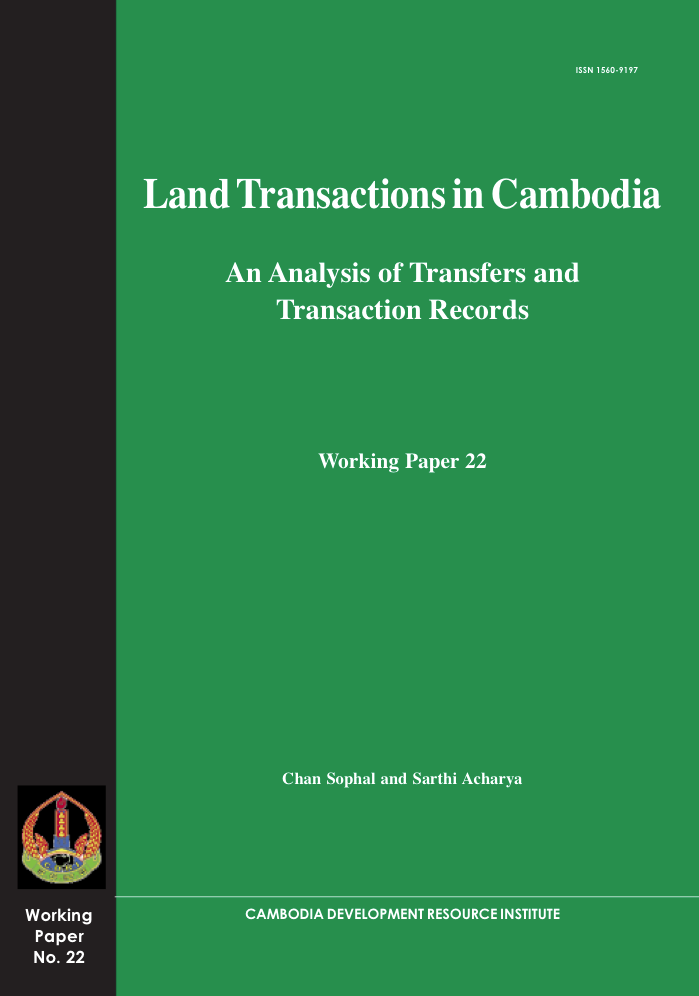
Land Transactions in Cambodia: An Analysis of Transfers and Transaction Records
This working paper investigates the dynamics of land transactions in Cambodia from 1995 to 2001, focusing on both residential and agricultural land. Drawing on official records from the Ministry of Land Management, Urban Planning and Construction and supplemented by qualitative field inquiries, the study reveals significant trends in formal and inf...
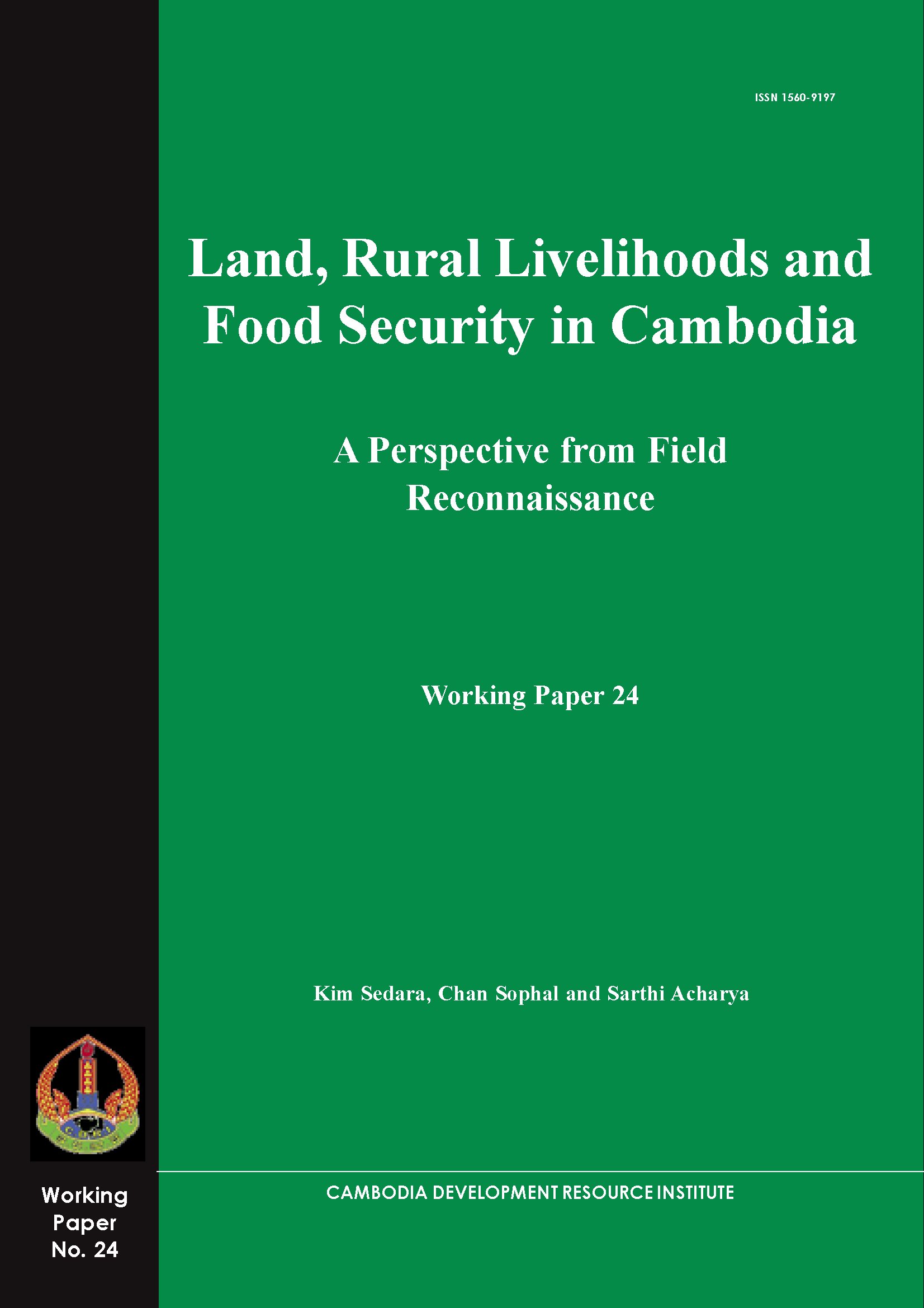
Land, Rural Livelihoods and Food Security in Cambodia: A Perspective from Field Reconnaissance
This working paper presents findings from field studies conducted in six Cambodian villages to assess rural livelihoods, land use, and food security. Despite an initially equitable land distribution following de-collectivisation in 1989, the study reveals growing land inequality and landlessness, exacerbated by population growth, land atomisation,...
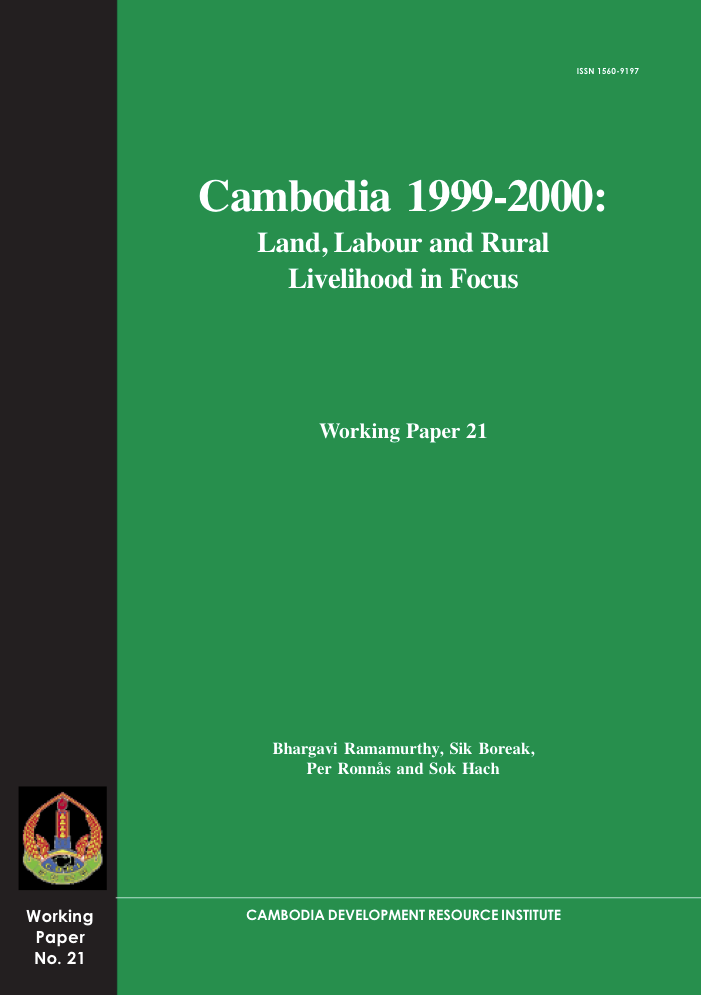
Cambodia 1999-2000: Land, Labour and Rural Livelihood in Focus
This working paper provides a comprehensive analysis of Cambodia’s macroeconomic performance and rural development challenges during 1999–2000. It is structured in three chapters: the first outlines macroeconomic trends, highlighting a return to growth and stability following the 1997 crises, with GDP growth reaching 4.5 percent in 1999, driven by...
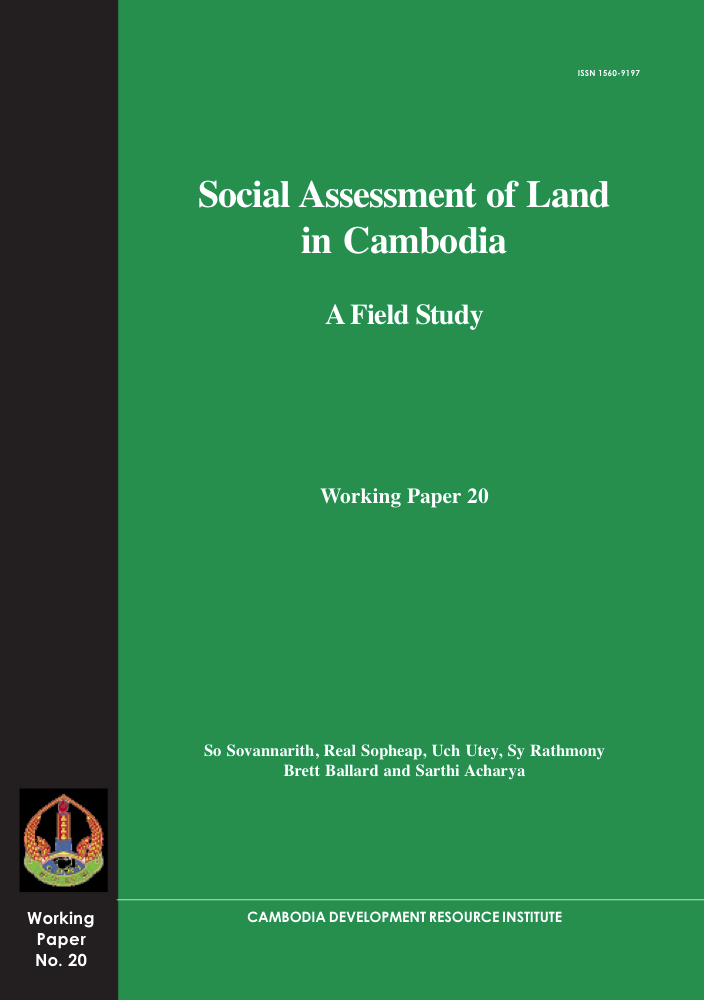
Social Assessment of Land in Cambodia: A Field Study
This working paper presents a comprehensive social assessment of land issues in Cambodia, conducted as a precursor to a national land titling and registration initiative. The study explores the complex landscape of land ownership, governance, and conflict resolution across rural and urban settings. Drawing on qualitative fieldwork in six provinces...
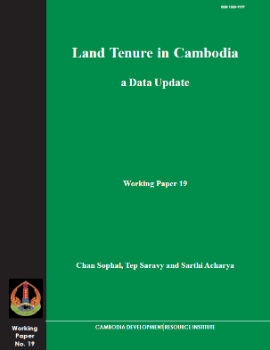
Land Tenure in Cambodia: A Data Update
This working paper presents a comprehensive update on land tenure in Cambodia, focusing on land use patterns, concession allocations, registration systems, and socio-economic implications. Drawing on aerial mapping, government records, and eight major surveys conducted between 1995 and 2000, the study analyses forest, agricultural, and fishing conc...
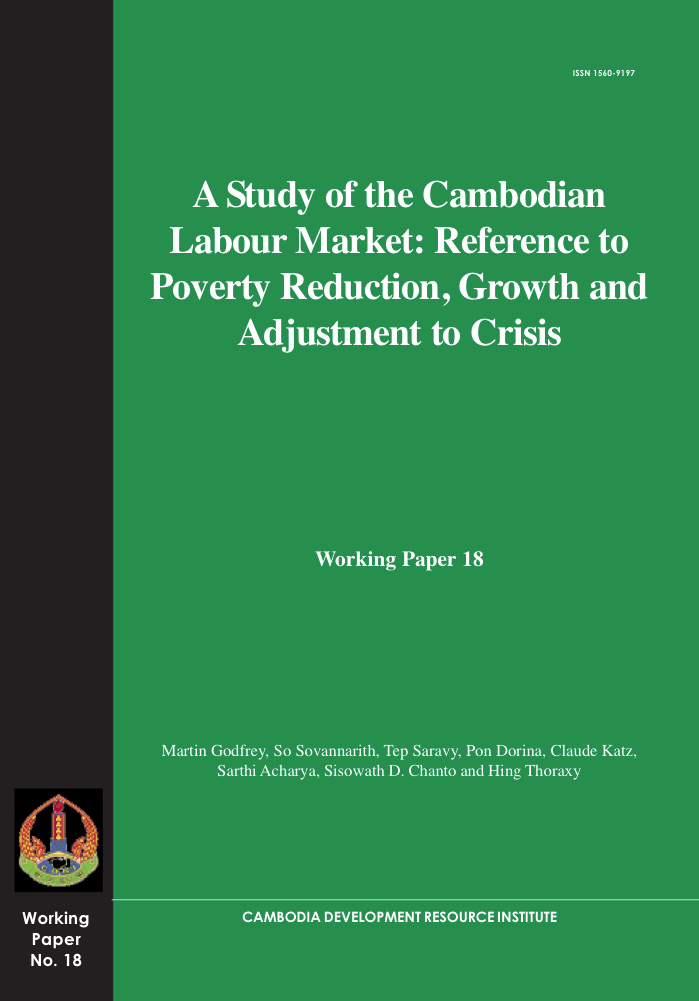
A Study of the Cambodian Labour Market: Reference to Poverty Reduction, Growth and Adjustment to Crisis
This working paper explores the nature and trajectory of Cambodia’s labour market, analysing both its structure and recent trends. On this basis, it examines the links between the labour market, poverty reduction and growth, and the impact which recent political and economic crises have had on the conditions of labour. Cambodia faces the dual a...
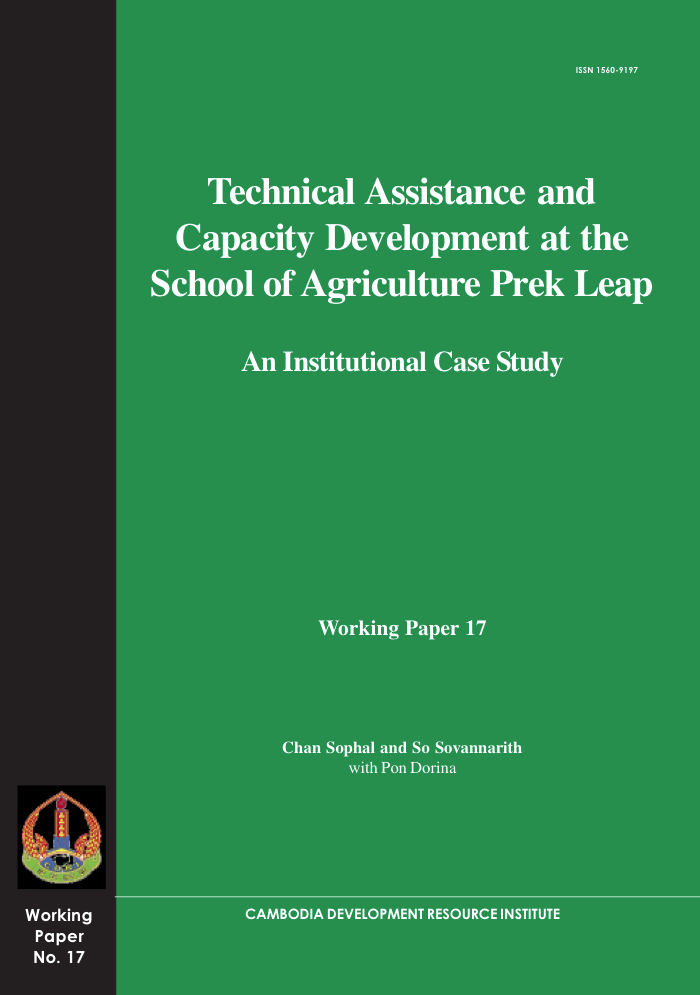
Technical Assistance and Capacity Development at the School of Agriculture Prek Leap: An Institutional Case Study
Arising from ashes left by the Khmer Rouge regime, the School of Agriculture Prek Leap (SAPL), like many other government institutions, has relied heavily on foreign assistance for its development. Apart from material support, technical assistance (TA) has played a major role in building both individual and institutional capacity. There is no d...
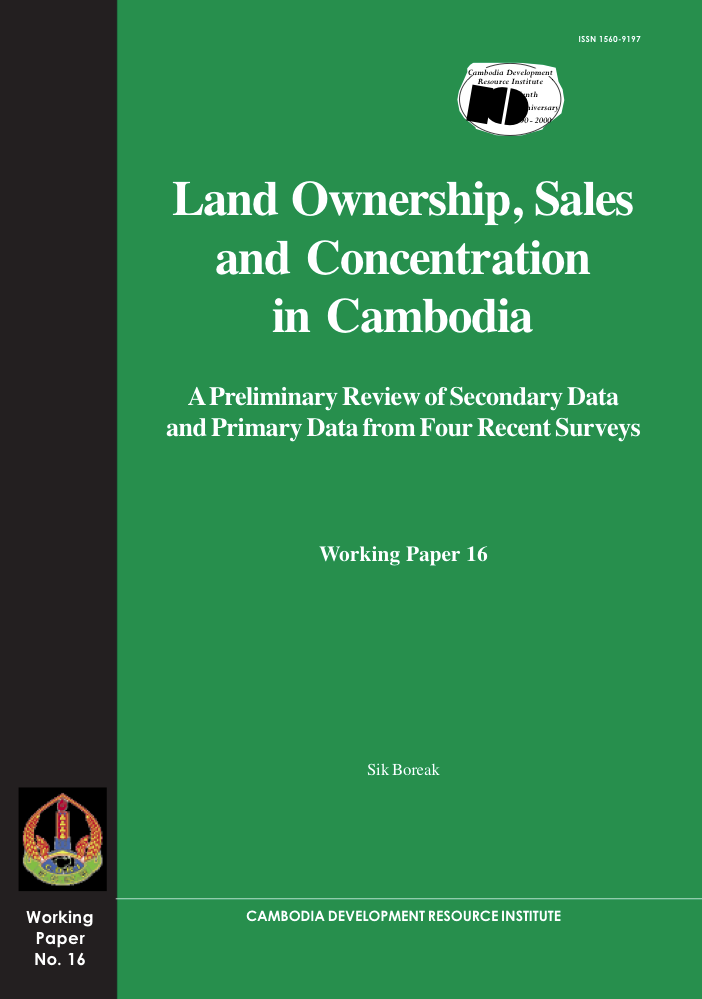
Land Ownership, Sales and Concentration in Cambodia
Land is the most important productive asset in agrarian societies such as Cambodia’s. Throughout Cambodian history, land ownership rights have varied with changes in government. In the period before French colonisation (pre-1863), when all land belonged to the sovereign, people were freely allowed to till unoccupied land and could cultivate as...
